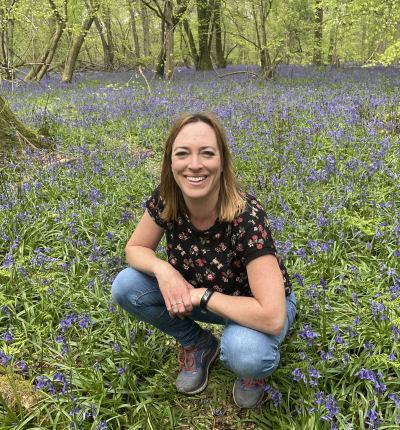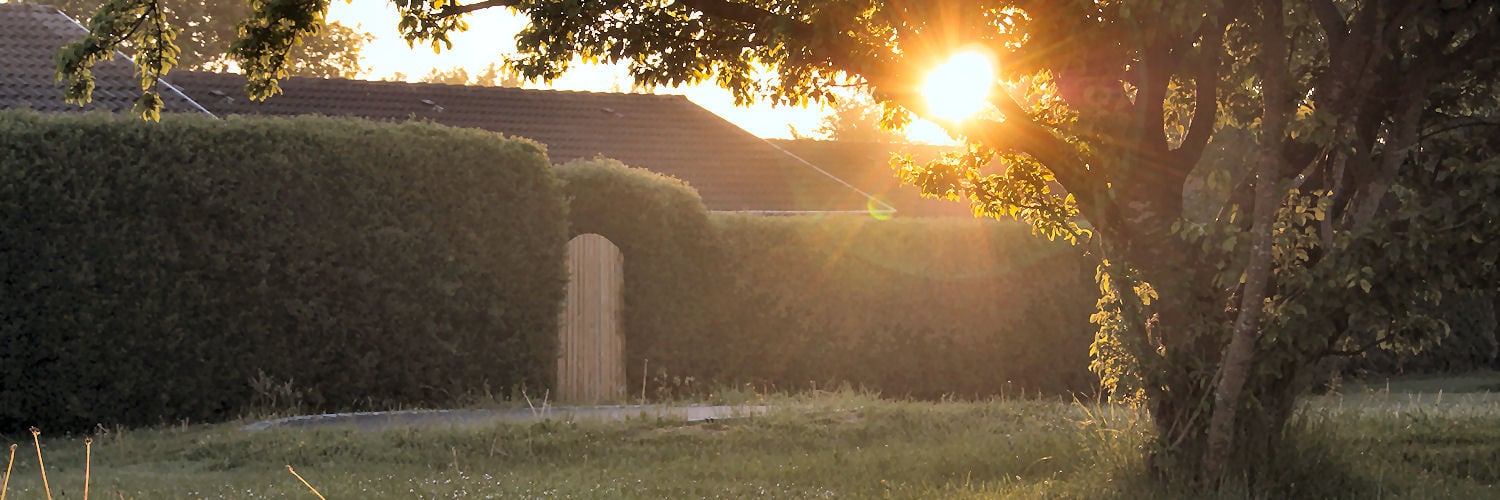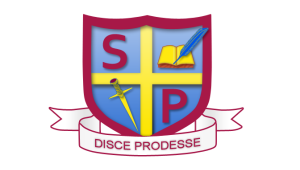Dr. Rebecca Day, Science Teacher at St. Paul's Catholic College
I’m increasingly aware, and thankful, that I had a wild childhood, one that so many children are denied today. My family were hardly the Durrells, and the other animals were no more exotic than a series of beloved moggies, some fairly ill-fated rabbits and goldfish – and a few “sea-monkeys”. However, in the, perhaps unpromising, environs of suburban Essex, my eyes were always open to the wonders of nature. My Grandma would point out wild flowers around the play park. My Dad could make an impressive note with a blade of grass or a mean catapult with a plantain head. My Mum and I spent hours poking around in our tiny garden pond watching wriggling mosquito larvae or waiting for a frog to pop up. Once we spotted a bee type thing with erratic flight and went to look it up in the library. We were delighted to find it was a bee-fly – it was like we’d discovered a new species!

I thought everyone did this.
Numerous encounters have made me realise this isn’t so. Whilst conducting field work in Australia my sassy Glaswegian research assistant called me over excitedly to show me some weird eggs she’d found – they were rabbit droppings. A bright and interested A-level biology student conducting a transect asked if the yellow flowers were daffodils – it was June and they were buttercups. When I took the same A-level class on a field trip to the Surrey Hills, a mere half an hour away from school, only one or two had ever visited before. Multiple studies have borne out the same findings: children can’t identify a robin or a nettle, and they have little (or no) unsupervised time in nature. Robert Louv coined the phrase “Nature Deficit Disorder” to describe this phenomenon and the profoundly sad effect it has on childhood. And it is sad not just for the individual but for us all. At a time where the wild world needs champions like never before we have become disconnected, forgetting how intimately linked we actually are. As David Attenborough has said “no one will protect what they don’t care about, and no one will care about what they have never experienced”.
Since having my own children, I feel like there is an effort to address this problem. We attended charming Forest School sessions when they were toddlers; their school keeps bees, chickens and has an outdoor classroom. I do my best to get them outside, sometimes the lure of I-pads and computer games is strong, but they are happiest once they are in a woodland or skimming stones on a beach. My experience is this is harder to continue as students reach secondary school. Fighting a packed timetable and admittedly the weirdest A-level years amid a global pandemic, I realised, ashamedly, that one of my classes had never set foot outside as part of their learning. When our school pond had to be moved for building works there was limited appetite to rebuild it. While in the past it was used to deliver content, these days it is only used a couple of times a year by the extra-curricular science club. GCSE Biology scarcely mentions non-human animals and when it does it is largely detailing loss of biodiversity – an important topic but one hardly likely to enthuse and inspire and hard for students to engage with when they lack experience of what is being lost.
And yet, the pandemic has reminded many of us of the restorative effect of being in nature. For many a slower pace of life meant we could notice the changing seasons and garden visitors like never before (at least not in our lifetimes). We are warned of the lingering mental health issues, particularly those effecting young people and it seems like the time is perfect to introduce a GCSE in Natural History. To me the qualification is of secondary importance to allowing children to learn to love nature.
I wish I could have studied the GCSE myself. Instead, I would gladly settle for teaching it, knowing it would be a steep learning curve. The breadth of the proposed Natural History GCSE is exciting, but potentially daunting given its multidisciplinary approach. The first thing we educators need to accept is we don’t know everything and take joy in discovering and learning alongside our students. As Rachel Naomi Remen puts it: “My grandfather taught me that a teacher is not a wise man, but a pointing finger directing our attention to the reality that surrounds us”. There is always more to learn: I am currently attending a course on identifying British birds by their song. I was humbled by my initial inability to tell a wren from a dunnock, but with a bit of patience and real attention to the amazing sounds that we so often tune out (or can’t hear above the traffic) I can now recognise them like familiar friends.
The second thing we should realise is there is an awful lot of help out there. I recently worked on a review of resources that could help teachers deliver the Natural History GCSE and there is so much that is freely available: from apps that can help identify fossils or plants to webpages which allow you to create your own maps using GIS (Geographic Information System). Additionally, there are many groups of local enthusiasts who would be keen to assist where they could. It may also be an opportunity for a more collaborative approach to teaching within a school, harnessing the expertise of the English and Art Departments to discuss how nature is presented in literature and art for example.
Finally, it is recognising nature is everywhere. We tend to focus on distant and dramatic landscapes like deserts and rainforests; what about what is literally right outside our windows? Not all children or schools will be blessed with gardens or beautiful grounds, but they can start by identifying the gulls fighting over crisps in the playground or the plants finding a way to survive on the football pitch. I would like to think the GCSE offers an opportunity to improve our school habitats for wildlife as well as taking advantage of visits to local wild spaces.
My own career has been a journey from studying nature to finding ways to share that enthusiasm with others. The Natural History GCSE would provide such an amazing chance to do that, and give a generation the skills to appreciate and find solace in their wild surroundings, and hopefully find a way to live sustainably within it.
Dr. Rebecca Day
Dr. Rebecca Day has a PhD in Zoology and was a former member of the Zoological Society of London’s Discovery and Learning team before retraining to become a secondary school science teacher. As an on-going “student of nature”, she has been a staunch advocate for the Natural History GCSE from its inception.
Keep up to date with our proposed GCSE in Natural History and other OCR Natural History news by signing up our email newsletter and updates. You can read back issues of our Natural History newsletter here.


